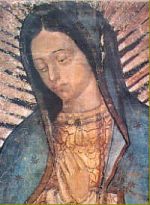Fathers of the Church
Epistle XLI: to Constantina Augusta
by Gregory the Great in 590-604 | translated by James Barmby, D.d
Gregory to Constantina, &c.
Knowing how my most serene Lady thinks about the heavenly country and the life of her soul, I consider that I should be greatly in fault were I to keep silence on matters that ought to be represented to her for the fear of God.
Having ascertained that there are many of the natives in the island of Sardinia who still, after the evil custom of their race, practise sacrifices to idols, and that the priests of the same island are sluggish in preaching our Redeemer, I sent thither one of the bishops of Italy, who with the co-operation of the Lord has brought many of the natives to the faith. But he has reported to me a sacrilegious proceeding, namely, that those in the island who sacrifice to idols pay a bribe to the judge for license to do this. And, when some of them had been baptized and had ceased sacrificing to idols, the same payment had been exacted by this same judge of the island, even after their baptism, which they had been previously accustomed to make for leave to sacrifice to idols. And, when the aforesaid bishop found fault with him, he replied that he had promised so large a suffragium that he could not make it up except by aid from cases of this kind. But the island of Corsica is oppressed by such an excessive number of exactors and such a burden of exactions, that those who are in it are hardly able to make up what is exacted except by selling their children. Hence it ensues that the proprietors of this island, deserting the pious republic, are forced to take refuge with that most wicked nation of the Lombards. For what can they suffer from barbarians harder or more cruel than being so straitened and squeezed as to be compelled to sell their children? Moreover, in the island of Sicily one Stephen, chartularius of the maritime parts, is said to practise such illegalities and such oppressions, invading places that belong to various persons, and without any legal process putting up titles on properties and houses, that, if I wished to tell every one of his doings that have come to my ears, I could not accomplish the task in a large volume.
Let my most serene Lady look to all these things wisely, and assuage the groans of the oppressed. For I suspect that these things have not come to your most pious ears. For if they could have reached them, they would by no means have continued until now. But they should be represented now at a suitable time to our most pious Lord, that he may remove such and so great a burden of sin from his own soul, from the empire, and from his sons. I know he will say that whatever is collected from the aforesaid islands is transmitted to us for the expenses of Italy. But in reply to this I suggest that, even though less expenditure were bestowed on Italy, he should still rid his empire of the tears of the oppressed. For perhaps, too, such great expenditure in this land profits less than it might do because the money for it is collected with some admixture of sin. Let therefore our most serene Lords give orders that nothing be collected with sin. And I know that, though less is given for the advantage of the republic, the republic is thereby much aided. And though perhaps it may be less aided by a less expenditure, yet it is better that we should not live temporally, than that you should find any hindrance in the way of eternal life. For consider what must be the feelings, what the state of heart of parents, when they part with their children lest they should be tormented. But how one ought to feel for the children of others is well known to those who have children of their own. Let it then suffice for me to have briefly represented these things, lest, if your Piety were not to know what is being done in these parts, I should suffer for the guilt of my silence before the strict judge.
Taken from "The Early Church Fathers and Other Works" originally published by Wm. B. Eerdmans Pub. Co. in English in Edinburgh, Scotland, beginning in 1867. (LNPF II/XII, Schaff and Wace). The digital version is by The Electronic Bible Society, P.O. Box 701356, Dallas, TX 75370, 214-407-WORD.






